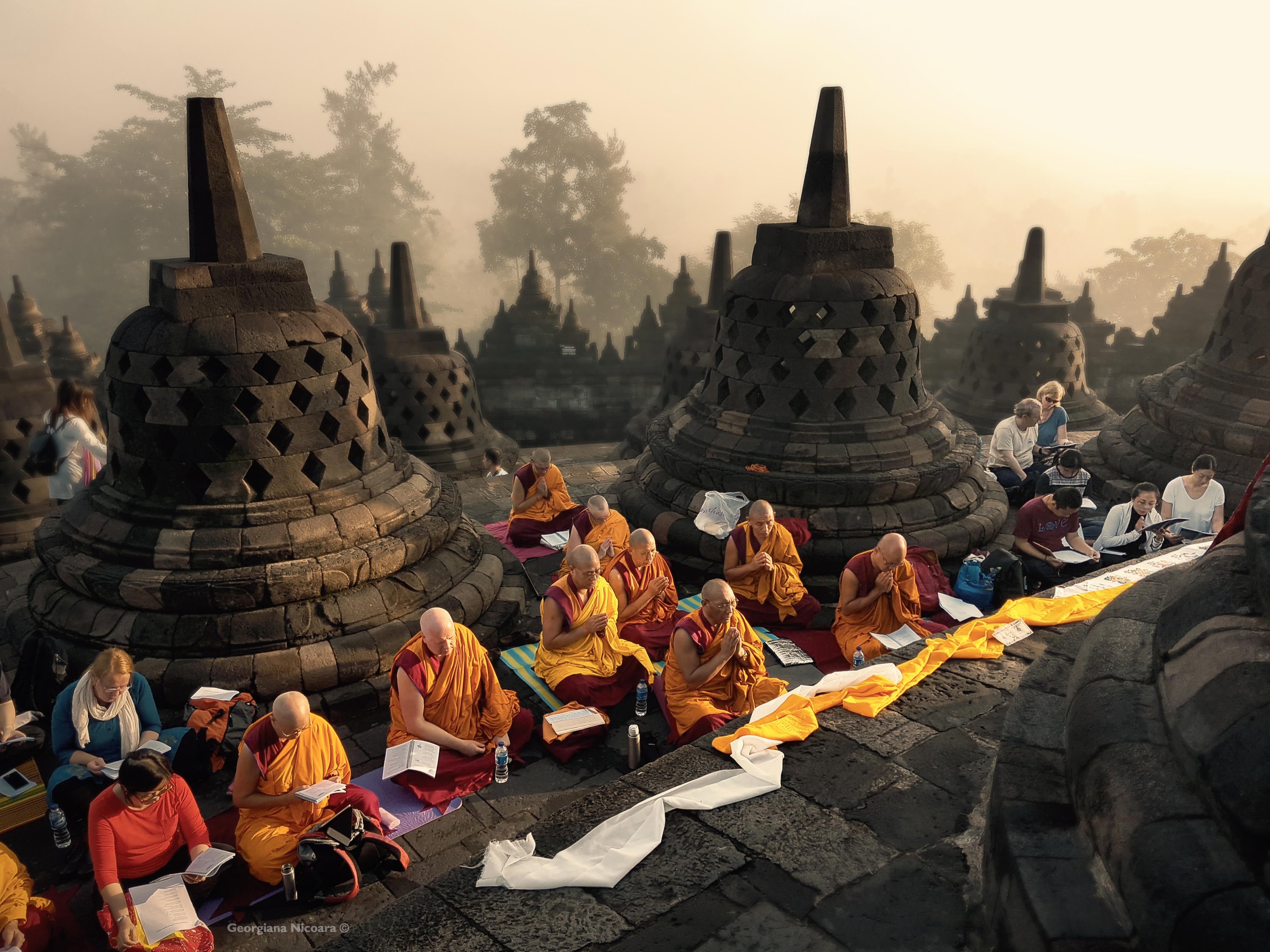
Of
the
thesis
entitled: Body,
Mind
and
Existence
Shaped
by
Built
Form: The
Strategic
Creation
of
Affective
Architecture
and
the
Practitioner’s
Role
Abstract:
This thesis takes the form of a pilgrimage to the Buddhist temple of Borobudur in Indonesia to explore the relationship between spiritual practices and physical space, in particular analyses the relationships between space, practice and affect. In this thesis space is identified as an overarching category to include the physical, social and mental environments. Practice indicates repeated engagement by the participant, and lastly, affect signifies the personal capacity to be changed by architecture beyond the momentary interaction. The potency of affective architecture relies on a careful balance between curated architectural methods and the mindful involvement of the practitioner. My experience pilgrimage through the temple of Borobudur acts as an architectural laboratory in order to investigate first hand the physical architectonic elements and methods of perception which support and amplify a spiritual encounter. The goal of the thesis is to understand the potential for architecture to encourage or promote spiritual awareness to better understand the physical space of spirituality.
The examining committee is as follows:
Supervisor:
Rick Haldenby, University of Waterloo
Committee Members:
Andrew Levitt, University of Waterloo
Robert Jan van Pelt, University of Waterloo
External Reader:
Christie Pearson
The
committee
has
been
approved
as
authorized
by
the
Graduate
Studies
Committee.
The
Defence
Examination
will
take
place:
Wednesday,
February
14,
2018
9:30
AM
ARC
2003
A
copy
of
the
thesis
is
available
for
perusal
in
ARC
2106A.